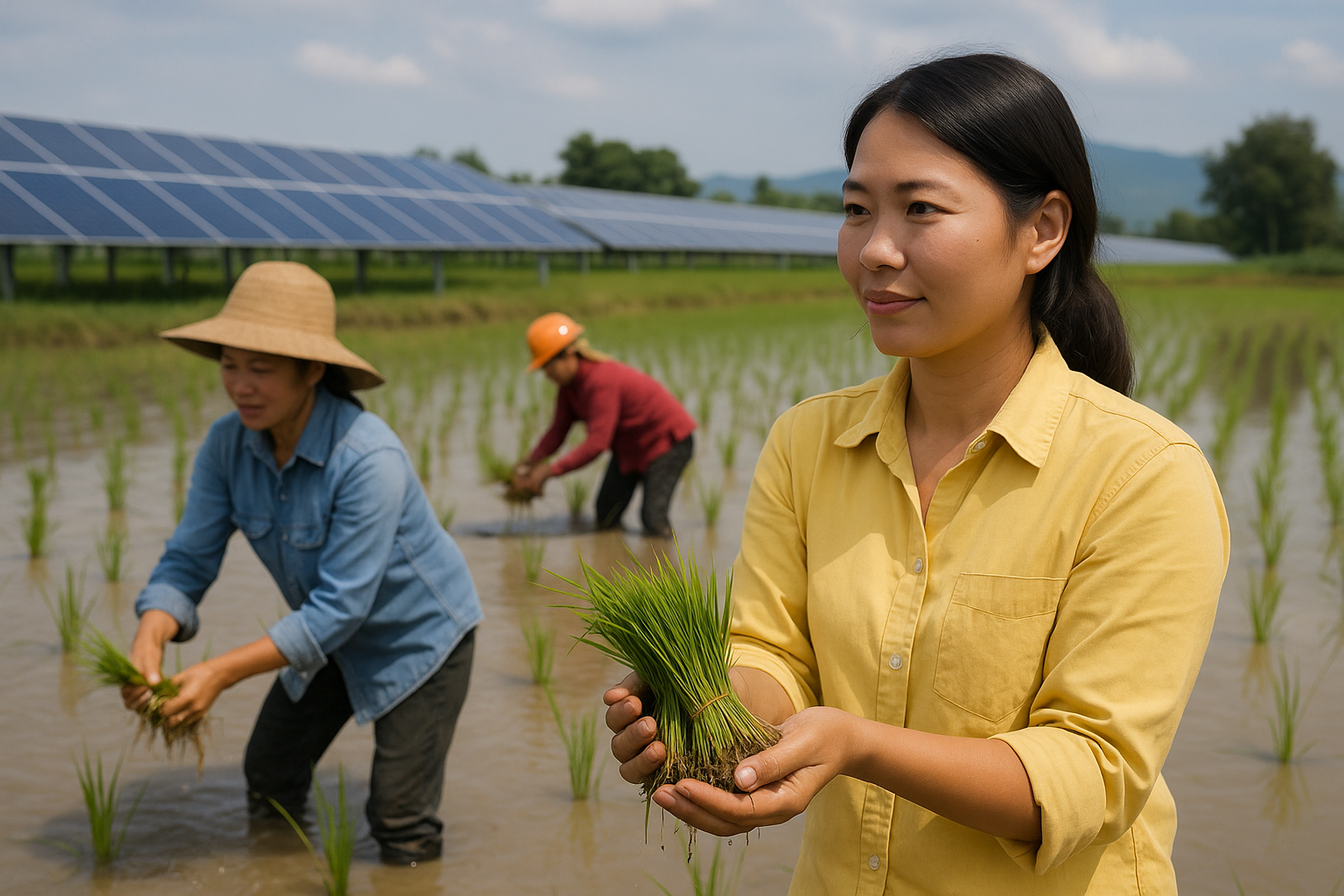IFC Report Urges Gender Inclusion in Viet Nam’s Green Industries for Growth
The report zeroes in on three pivotal sectors—solar energy, plastics recycling, and rice production—selected for their central role in Viet Nam’s climate goals and investment potential.

- Country:
- Vietnam
A transformative new report by the International Finance Corporation (IFC), backed by the Australian government, makes a compelling case for Viet Nam’s private sector to address gender disparity and unlock the full potential of its emerging green economy. Titled The Green Edge: Women’s Employment and Leadership for Sustainable Business in Viet Nam, the report reveals stark gender gaps in key sectors vital to the country’s low-carbon transition—and presents a roadmap for inclusive, resilient growth.
Key Sectors, Missed Opportunities
The report zeroes in on three pivotal sectors—solar energy, plastics recycling, and rice production—selected for their central role in Viet Nam’s climate goals and investment potential. However, it highlights a troubling imbalance: women account for only 23 percent of formal employment and just 21 percent of leadership positions in these industries.
As the country intensifies its climate mitigation efforts and scales up green sectors to meet sustainability targets, failing to include women equally risks constraining innovation, productivity, and business competitiveness.
Inclusive Growth is Smart Economics
The evidence is clear: when companies employ and empower women, their performance improves. The report notes that gender-balanced companies are better equipped to manage climate risks, attract capital, reduce emissions, and tap into new growth opportunities. Some Vietnamese firms already leading in this space have reported improved access to competitive financing after adopting inclusive workplace policies such as equal opportunity recruitment, gender-sensitive leadership training, and flexible working arrangements.
“By investing in women’s participation in climate-critical sectors, we can accelerate progress toward net-zero while ensuring that the benefits of growth are shared by all,” said Australia’s Ambassador to Viet Nam, H.E. Gillian Bird.
A Looming Talent Crunch
The urgency is underscored by a looming talent gap. The World Bank Group estimates that Viet Nam’s net-zero journey will generate nearly one million green jobs by 2040, with many requiring skills in science, technology, engineering, and mathematics (STEM). However, without deliberate measures, women are likely to be underrepresented in these future-ready roles.
This talent shortage presents both a challenge and an opportunity: closing gender gaps not only builds a robust workforce but also positions businesses to thrive in an increasingly green, competitive global market.
Recommendations for Action
The Green Edge report lays out concrete, actionable strategies for businesses across the solar, recycling, and agriculture value chains:
-
Targeted recruitment campaigns to attract women to male-dominated roles;
-
Upskilling and technical training programs designed to support career advancement for women;
-
Inclusive workplace policies that ensure safety, flexibility, and equal growth opportunities;
-
Gender-responsive supply chain practices, including support for women-owned suppliers and cooperatives.
These strategies are not only socially transformative—they make smart business sense. Companies that are inclusive tend to enjoy improved reputation, workforce engagement, and investor confidence.
A National Development Priority
Viet Nam has made bold commitments to climate action and green transformation, with the government pledging net-zero emissions by 2050. For these ambitions to succeed, the private sector must evolve alongside, playing a proactive role in building a gender-inclusive workforce that can drive sustainable development.
“Viet Nam’s bold commitment to a low-carbon, climate-resilient economy is not just a necessity—it’s a powerful opportunity for businesses to lead transformative change,” said Thomas Jacobs, IFC Country Manager for Viet Nam, Cambodia, and Lao PDR.
The report is part of a broader IFC effort to support private sector-led climate solutions that drive equitable job creation and are aligned with national development and gender equality goals. Funded by Australia’s development program in Viet Nam, the initiative reinforces the message that climate action and inclusion are not mutually exclusive—they are two sides of the same sustainable coin.
ALSO READ
Rayzon Solar's IPO Boost: Shaping the Future of Solar Energy in India
Why STEM feels like a ‘non-place’ for women? What schools can do about it
Green imports could slash Europe’s net-zero energy costs by €37 billion
Diplomatic Phone Talks Aim to Stem Iran-Israel Conflict
Adani's Cement Giants Lead India's Green Transition with Net-Zero Milestone










